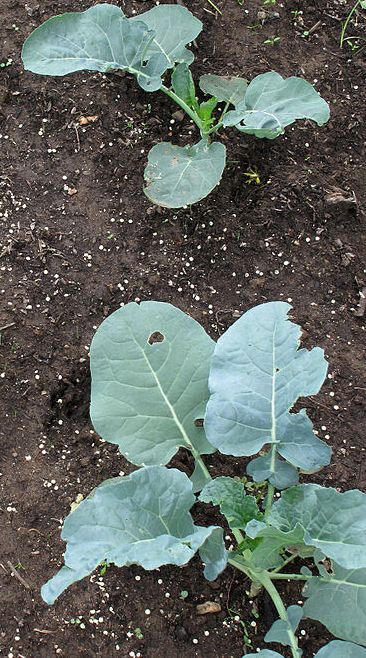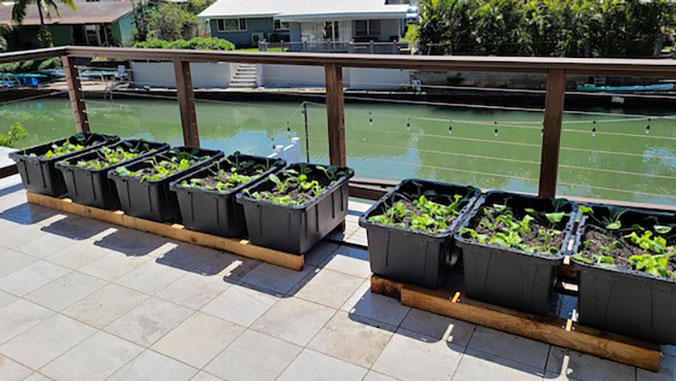
Proper gardening care can make it easier to grow your own vegetables and fruits. This will improve the quality and increase their longevity. Different plant species require different amounts of sun and water, so be sure to pay attention before you start planting. Proper gardening care will ensure that your crop thrives, regardless of its type. You should keep in mind that each plant will require different gardening care. Here are some suggestions for caring for your outdoors crops.
It is vital to water your plants often. Most plants will lose moisture during the day through a process called transpiration, which they need to reabsorb through their roots. You should water your garden especially during summer because warmer temperatures will evaporate water. Plants also need to be watered more often than they do on sunny days. Other than watering your plant, make sure to inspect for pests and fertilizers.

Spring is the ideal time to plant your new plant. It is best to plant it in the area that you are most comfortable with for best results. Make sure you follow the guidelines for planting a new plant. Don't forget to follow the guidelines for timing and type of soil. Also, take care of your plants. To make your garden grow well, prune it if you have large plants. After pruning and fertilizing, clean up the garden to ensure they're still healthy and beautiful.
Pruning can also be important. If you have a lot fruit or vegetable crops in your yard, you will need to prune them as soon they mature. They can attract disease and pests if the fruit or vegetables don't get ripe enough. Regularly pruning your plants is important. You can schedule professional watering if you are going on vacation or for work for a few nights.
It is important to know the details of each gardening service you are considering hiring. Some people do all of their gardening tasks by themselves. Others only hire a professional to help them once or twice each year. Other people choose to hire a professional gardener weekly to take care of their plants. Once you have determined the level of assistance you require from your gardener's staff, it is time to talk with them about your specific needs.

A garden that looks great for many years will be possible by carefully choosing plants. Whether you have a small garden or a large one, the right choice of plants will depend on your climate. You may wish to choose native plants to attract pollinators, or you might simply want to use them for your crafts. There are many benefits to gardening, no matter where you live. You'll also enjoy a beautiful garden full of life.
FAQ
Which is the best layout for a vegetable garden?
The best vegetable garden layout depends on where you live. For easy harvesting, it is best to plant vegetables in the same area as your home. You should plant your vegetables in groups if you live outside of the city. This will ensure maximum yield.
What month is the best time to start a garden?
Planting vegetables in April and June is the best time. This is when the soil gets warmest, and plants tend to grow quickly. If you live somewhere cold, it is best to wait until July or august.
Which vegetables are best to grow together?
Tomatoes and peppers can be grown together because they prefer similar soil conditions. They can complement each other because tomatoes require heat to mature, and peppers require lower temperatures for their optimal flavor. To grow them together, you can start seeds indoors around six weeks before planting. Once the weather warms up, transplant the tomato and pepper plants outdoors.
How do you prepare the soil for a vegetable garden?
Preparing soil is simple for a vegetable garden. First, remove all weeds in the area where you plan to plant vegetables. Next, add organic matter like composted manure and leaves, grass clippings or straw. Let the plants grow by watering well.
Which seeds should you start indoors?
A tomato seed makes the best seed for indoor planting. Tomatoes are very easy to grow and produce fruit year-round. When growing tomatoes in pots, be careful when transplanting them into the ground. Planting tomatoes too early can lead to soil drying out which could lead roots to rot. Plant diseases like bacterial disease can quickly kill plants.
Can I plant fruit trees in pots
Yes! Fruit trees can be grown in pots if you're short on space. You should make sure that your pot has drainage holes to keep excess moisture from rotting the tree. Also, ensure the pot is deep enough to hold the root ball. This will help prevent stress on the tree.
Statistics
- Today, 80 percent of all corn grown in North America is from GMO seed that is planted and sprayed with Roundup. - parkseed.com
- According to a survey from the National Gardening Association, upward of 18 million novice gardeners have picked up a shovel since 2020. (wsj.com)
- According to the National Gardening Association, the average family with a garden spends $70 on their crops—but they grow an estimated $600 worth of veggies! - blog.nationwide.com
- 80% of residents spent a lifetime as large-scale farmers (or working on farms) using many chemicals believed to be cancerous today. (acountrygirlslife.com)
External Links
How To
Use organic fertilizers in your garden
Organic fertilizers are made with natural substances like compost, manure, seaweed extract and blood meal. Organic fertilizers are made from non-synthetic materials. Synthetic fertilizers can be used in industrial processes. They are often used in agriculture since they provide nutrients to plants efficiently and quickly, without the need of complicated preparation. However, synthetic fertilizers present risks to both the environment- and human health. To produce, synthetic fertilizers require a lot of energy and water. Moreover, many synthetic fertilizers pollute groundwater and surface waters due to runoff. This pollution is harmful to wildlife and humans.
There are several types of organic fertilizers:
* Manure is created when livestock eat foods containing nitrogen (a nutrient for plants). It's made of bacteria and enzymes which break down the waste to simple compounds that can be taken by plants.
* Compost - A mixture of grass clippings from the lawn, decaying leaves, vegetable scraps, and animal dung. It is rich in carbon, nitrogen, phosphorous, potassium, magnesium and sulfur. It is porous so it retains moisture well and releases nutrients slowly.
* Fish Emulsion: A liquid product derived primarily from fish oil. It is similar to soap in its ability to dissolve oils and fats. It also contains trace elements like phosphorous, Nitrogen, and other elements.
* Seaweed Oil - A concentrated mixture of minerals taken from kelp, red and brown algae, as well as green algae. It contains vitamins A and C, iron, and Iodine.
* Guano is the excrement of seabirds and bats. It is rich in nitrogen, phosphorous and potassium as well as sodium, magnesium, sulfate and chloride.
* Blood Meal is the meat and bones of animals that have been slaughtered. It is rich with protein, making it useful for feeding poultry or other animals. It also contains trace mineral, phosphorus as well as potassium, nitrogen, and phosphorus.
To make organic fertilizer, combine equal parts of manure, compost, and/or fish emulsion. Mix well. You can substitute one with another if you don't have access to all three ingredients. You can mix one part of the fish emulsion with two portions of compost if you don't have enough.
To apply the fertilizer, spread it evenly over the soil using a shovel or tiller. About a quarter of a cup of the fertilizer is needed per square foot. You'll need to add fertilizer every two weeks until new growth appears.